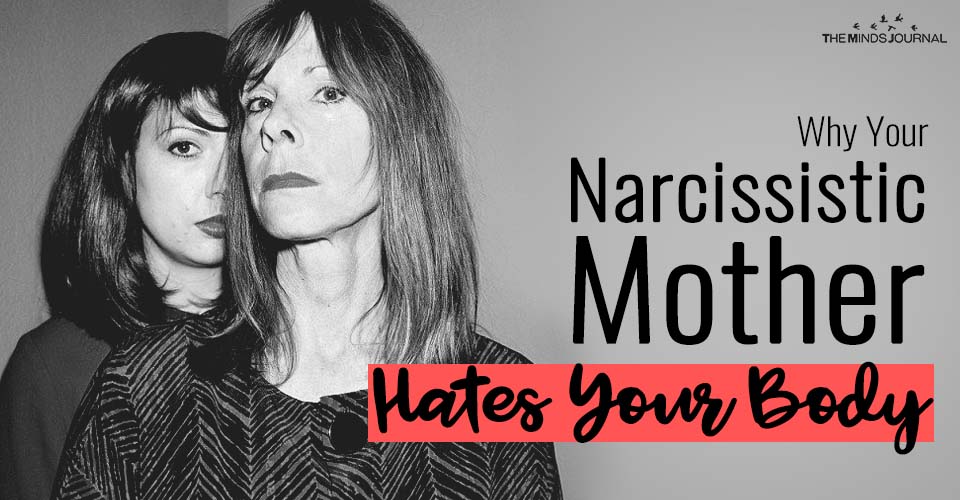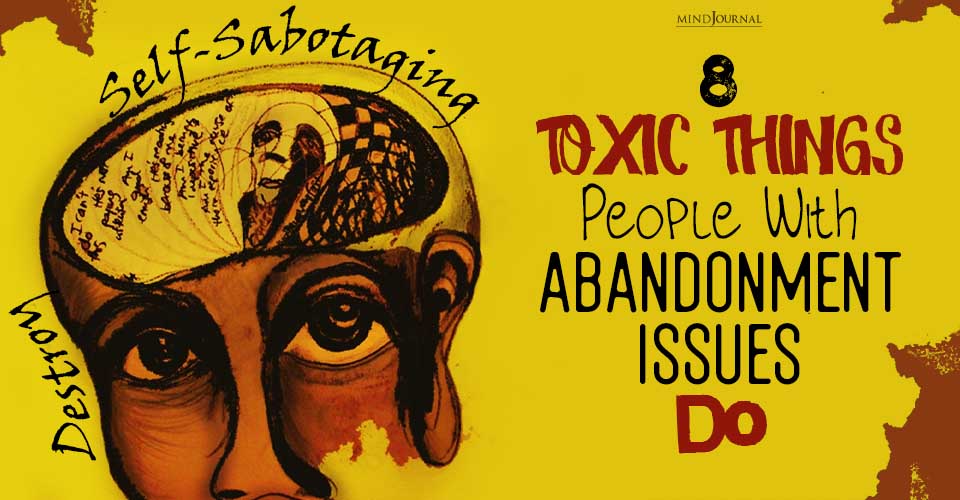Do you have a narcissistic mother who vehemently hates your body, body shames you and makes you feel horrible about it all the time?
Your Narcissistic Mother Hates Your Body, and Here’s Why
As the daughter of a narcissistic mother, you face countless assaults to your identity, integrity, and individuality. One of the most pernicious forms of assault plays out on the battlefield of your body.
Before we peer into the black hole that is your mother and her relationship to your body, let’s review a few narcissistic personality disorder (NPD) basics. People with NPD violate boundaries, avoid self-reflection and accountability, and don’t care if they hurt those around them. They think hierarchically, objectify others, value superficial markers of status, and compulsively project their own shame onto those close to them to manage their unstable self-esteem.
Do you have a narcissistic mother? Read 24 Characteristics of Narcissistic Mothers
Your Narcissistic Mother Hates Your Body
Your narcissistic mother really does hate your body, and here’s why: The simple answer is that she hates her own body and yours by extension.
In her myopic view, as her daughter, you simultaneously represent her and pose a threat to her; your body is a kaleidoscope of her distorted projections.
You exist as an extension of her and an object in relation to her, not as a subject with your own valid and complex identity, traits, feelings, needs, preferences, and boundaries. Whether you function as a source of pride, embarrassment, or competition, your body is not your own but rather hers to control, judge, display, reject, or otherwise exploit, neglect, and abuse.
Remember also that your narcissistic mother will tell you, others, and herself that she wants the best for you. This is because she can’t bear to be seen or to see herself as anything less than a devoted and loving mother, and she expects you to mirror that back for her regardless of how true it feels to you.
If she attempts to control your eating habits, hairstyle, or clothing choices, she will always tell you explicitly or implicitly that it is for your own good, even if it involves violations such as the following:
1. Sizing you up visually or verbally
2. Comparing your appearance to that of herself, siblings, or others
3. Calling you names
4. Fat-shaming you
5. Shaming you about your skin or hair color
6. Overfeeding or underfeeding you
7. Dictating your diet
8. Cutting or styling your hair unattractively or age-inappropriately
9. Discussing your looks or weight with others
10. Commenting on your eating habits
11. Blaming you for your health problems
12. Pushing you to get plastic surgery
13. Pushing you to straighten or dye your hair
14. Giving you clothes too big, too small, or otherwise inappropriate
15. Neglecting to buy your clothes
16. Neglecting your personal hygiene needs
17. Shaming you for your personal hygiene
18. Objectifying you as a sexual object for boys or men
19. Shaming you for your sexuality
20. Shaming you for your femininity
21. Criticizing your personal style
22. Fear-mongering about your attractiveness to boys or men
The Role of Misogyny and Societal Narcissism
The projected self-hatred of narcissistic mothers onto their daughters is a human tragedy often perpetuated across generations. It is easy to pathologize the narcissistic mother and lay the blame at her feet, but her shame and rage are rooted in larger social problems.
Institutionalized gender inequity, misogyny, and distorted identity politics that objectify girls and women as symbols of male privilege and pleasure while stripping them of self-esteem, personal agency, and educational and economic opportunity drive generational narcissism.
Do you feel your mother is jealous of you? Read When A Mother Is Jealous of Her Daughter
The Path to Healing
To heal ourselves and our daughters, we must reimagine our core values as members of the human tribe. This includes teaching our daughters and our sons to respect and honor their own authenticity, respond empathetically to themselves and those around them, and think critically about prevailing norms.
We can’t change our narcissistic mothers, but we can work on building self-love and respect in our own lives and relationships and guiding our children to carry that strength forward for themselves and those they touch.
Narcissistic mothers can have a heavy impact on their daughter’s psyche, especially if they are constantly putting them down and criticizing their bodies.
The best way to counter this is by loving yourself and having confidence in yourself, as this can help you heal yourself from narcissistic abuse in the long run.
If you want to know more about narcissistic mothers and being the daughter of one, then this video might be helpful for you:
Written By Julie L. Hall
Originally Appeared In Psychology Today










Leave a Reply